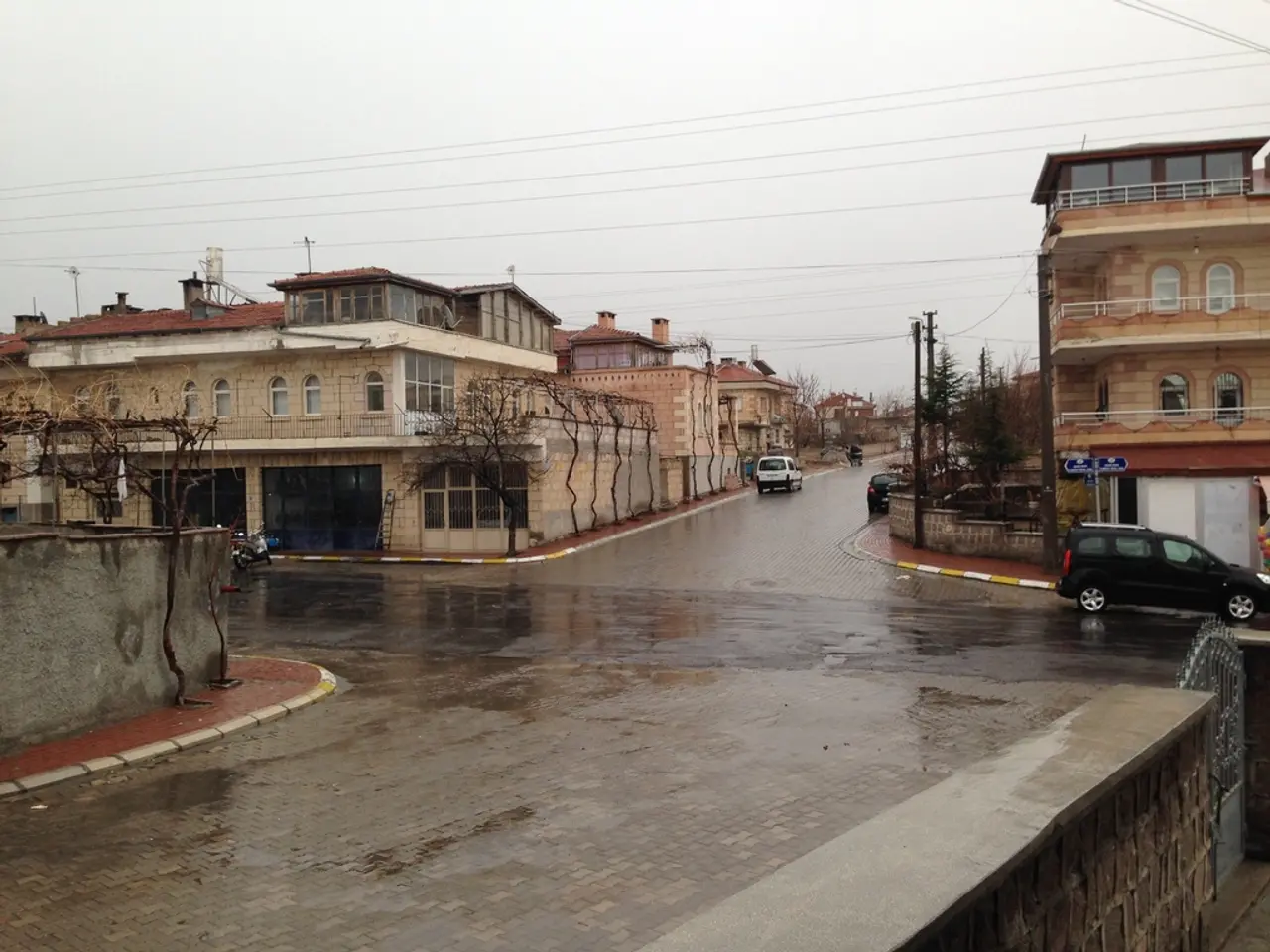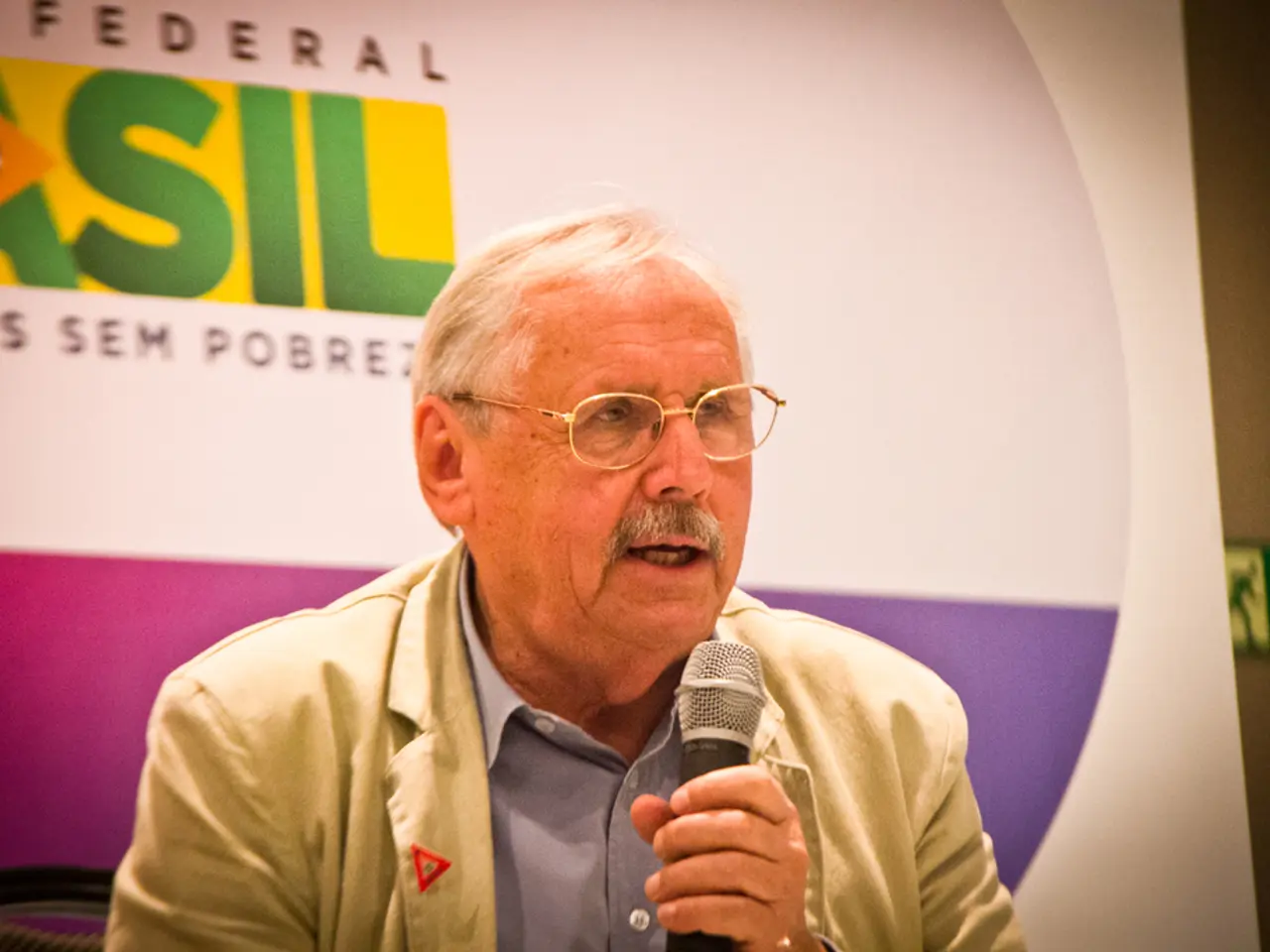"Ha Noi suggests fiscal aid and priority loans for electric vehicle shift in preparations for impending vehicle emission restrictions"
Hanoi, the capital city of Vietnam, has unveiled a timeline for phasing out fossil fuel vehicles and announced financial incentives for residents switching to electric vehicles (EVs). The ban on fossil fuel vehicles is set to begin in 2026 and will be implemented gradually, with a focus on motorbikes within the Ring Road 1 area.
Starting from **July 1, 2026**, motorbikes running on fossil fuels will be banned within the area enclosed by Belt Road No. 1, which includes major streets such as Tran Khat Chan, Dai Co Viet, Xa Dan, Hoang Cau, and Voi Phuc.
The ban will extend to personal fossil fuel–powered cars within both Belt Road Nos. 1 and 2 from **January 1, 2028**. By **2030**, all personal vehicles using fossil fuels will be banned within Belt Road No. 3, the largest inner ring road area in the city.
To facilitate the transition to EVs, Hanoi authorities are instructed to swiftly implement solutions supporting individuals and organizations transitioning to cleaner vehicles. While specific monetary incentives are not detailed, the city plans to support the manufacturing and assembly of clean vehicles, expand infrastructure including charging stations and other facilities for EVs, and increase fees for registration, licensing, number plates, and parking for fossil-fueled vehicles.
The proposed support for individual residents ranges from VNĐ3-5 million ($114-191) for those switching to EVs valued at VNĐ15 million ($573) or more. Investors in clean transport infrastructure, especially under the public-private partnership (PPP) model, will receive 100% land lease exemptions for designated areas through 2033.
In addition to these measures, the city also proposes a preferential loan scheme for eligible borrowers, offering interest rates of 3 to 5 per cent per year for up to five years. The city will subsidize 70% of interest on bank loans for infrastructure projects involving clean energy stations during the first five years.
The city's plans also include a phased approach to banning fossil fuel-powered vehicles, starting with a pilot ban on petrol motorbikes from January 1 to June 30, 2026, before the ban actually takes place. Each individual is eligible to receive support for one vehicle until the end of 2030.
Polluting vehicles entering restricted zones will be subject to road-use charges and higher parking fees. New projects in Hanoi must meet a 30% threshold for EV charging points. The city plans to implement a ban on fossil fuel vehicles within Ring Road 1 starting July 2026, with the ban on fossil fuel-powered vehicles extending to Ring Road 2 starting from January 1, 2028.
By gradually restricting all non-green motor vehicles and offering financial incentives, Hanoi aims to reduce air pollution and promote the use of cleaner, more sustainable transportation options. The city's commitment to this transition demonstrates a significant step towards a greener future for Vietnam's capital.
[1] Hanoi Times. (2023, March 15). Hanoi to ban fossil fuel vehicles within Ring Road 1 starting July 2026. Retrieved from https://hanoitimes.vn/hanoi-to-ban-fossil-fuel-vehicles-within-ring-road-1-starting-july-2026-318759.html [2] VnExpress International. (2023, March 15). Hanoi to ban fossil fuel vehicles within Ring Road 1 starting July 2026. Retrieved from https://e.vnexpress.net/news/news/hanoi-to-ban-fossil-fuel-vehicles-within-ring-road-1-starting-july-2026-4502088.html [3] Tuoi Tre News. (2023, March 15). Hanoi to ban fossil fuel vehicles within Ring Road 1 starting July 2026. Retrieved from https://tuoitrenews.vn/news/society/20230315/hanoi-to-ban-fossil-fuel-vehicles-within-ring-road-1-starting-july-2026/6264811.html [5] Thanh Nien News. (2023, March 15). Hanoi to ban fossil fuel vehicles within Ring Road 1 starting July 2026. Retrieved from https://www.thanhniennews.com.vn/society/hanoi-to-ban-fossil-fuel-vehicles-within-ring-road-1-starting-july-2026-6264811.html
- Hanoi's aim to promote cleaner transportation options extends beyond vehicles, as the city plans to support the manufacturing and assembly of clean vehicles, thereby boosting the AI and energy sectors in the city's business landscape.
- In an effort to encourage the use of EVs in sports and recreation, Hanoi authorities are considering building EV charging stations near sports facilities and stadiums, making it more convenient for residents to participate in sporting events while driving EVs.
- To further demonstrate its commitment to a greener future, Hanoi intends to invest in clean energy stations and implement preferential loan schemes for borrowers involved in space exploration and research, as long as their projects meet the city's green energy criteria.







